第24章 CHAPTER IV.(3)
The neighbourhood of Cassala is well adapted for the presence of a large town and military station, as the fertile soil produces the necessary supplies, while the river Gash affords excellent water. In the rainy season this should be filtered, as it brings down many impurities from the torrents of Abyssinia, but in the heat of summer the river is entirely dry, and clear and wholesome water is procured from wells in the sandy bed. The south and south-east of Cassala is wild and mountainous, affording excellent localities for hill stations during the unhealthy rainy season; but such sanitary arrangements for the preservation of troops are about as much heeded by the Egyptian Government as by our own, and regiments are left in unwholesome climates to take their chance, although the means of safety are at hand.
The Taka country being the extreme frontier of Egypt, constant raids are made by the Egyptians upon their neighbours--the hostile Base, through which country the river Gash or Mareb descends. I was anxious to procure all the information possible concerning the Base, as it would be necessary to traverse the greater portion in exploring the Settite river, which is the principal tributary of the Atbara, and which is in fact the main and parent stream, although bearing a different name. I heard but one opinion of the Base--it was a wild and independent country, inhabited by a ferocious race, whose hand was against every man, and who in return were the enemies of all by whom they were surrounded--Egyptians, Abyssinians, Arabs, and Mek Nimmur;nevertheless, secure in their mountainous stronghold, they defied all adversaries. The Base is a portion of Abyssinia, but the origin of the tribe that occupies this ineradicable hornet's nest is unknown. Whether they are the remnant of the original Ethiopians, who possessed the country prior to the conquests of the Abyssinians, or whether they are descended from the woolly-haired tribes of the south banks of the Blue Nile, is equally a mystery; all we know is that they are of the same type as the inhabitants of Fazogle, of the upper portion of the Blue River; they are exceedingly black, with woolly hair, resembling in that respect the negro, but without the flat nose or prognathous jaw. No quarter is given on either side, should the Base meet the Arabs, with whom war is to the knife. In spite of the overwhelming superiority of their adversaries, the Base cannot be positively subdued; armed with the lance as their only weapon, but depending upon extreme agility and the natural difficulties of their mountain passes, the attack of the Base is always by stealth; their spies are ever prowling about unseen like the leopard, and their onset is invariably a surprise;success or defeat are alike followed by a rapid retreat to their mountains.
As there is nothing to be obtained by the plunder of the Base but women and children as slaves, the country is generally avoided, unless visited for the express purpose of a slave razzia.
Cultivation being extremely limited, the greater portion of the country is perfectly wild, and is never visited even by the Base themselves unless for the purpose of hunting. Several beautiful rivers descend from the mountain ranges, which ultimately flow into the Atbara; these, unlike the latter river, are never dry:
thus, with a constant supply of water, in a country of forest and herbage, the Base abounds in elephants, rhinoceroses, hippopotami, giraffes, buffaloes, lions, leopards, and great numbers of the antelope tribe.
Cassala, thus situated on the confines of the Taka country, is an important military point in the event of war between Egypt and Abyssinia, as the Base would be invaluable as allies to the Egyptians; their country commands the very heart of Abyssinia, and their knowledge of the roads would be an incalculable advantage to an invading force. On the 14th July I had concluded my arrangements for the start; there had been some difficulty in procuring camels, but the all-powerful firman was a never-failing talisman, and, as the Arabs had declined to let their animals for hire, the Governor despatched a number of soldiers and seized the required number, including their owners. I engaged two wild young Arabs of eighteen and twenty years of age, named Bacheet and Wat Gamma: the latter being interpreted signifies "Son of the Moon."This in no way suggests lunacy, but the young Arab had happened to enter this world on the day of the new moon, which was considered to be a particularly fortunate and brilliant omen at his birth. Whether the climax of his good fortune had arrived at the moment he entered my service I know not, but, if so, there was a cloud over his happiness in his subjection to Mahomet the dragoman, who rejoiced in the opportunity of bullying the two inferiors. Wat Gamma was a quiet, steady, well-conducted lad, who bore oppression mildly; but the younger, Bacheet, was a fiery, wild young Arab, who, although an excellent boy in his peculiar way, was almost incapable of being tamed and domesticated. I at once perceived that Mahomet would have a determined rebel to control, which I confess I did not regret. Wages were not high in this part of the world,--the lads were engaged at one and a half dollar per month and their keep. Mahomet, who was a great man, suffered from the same complaint to which great men are (in those countries) particularly subject: wherever he went, he was attacked with claimants of relationship; he was overwhelmed with professions of friendship from people who claimed to be connexions of some of his family; in fact, if all the ramifications of his race were correctly represented by the claimants of relationship, Mahomet's family tree would have shaded the Nubian desert.